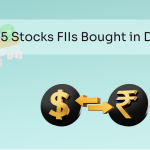Silver has long held a unique position in India—as jewellery, currency, and a trusted store of value. In modern times, the precious metal has also become a popular vehicle for silver trading and investment. Silver futures offer Indian investors an accessible, efficient and potentially lucrative way to participate in silver price movements—without the logistical challenges or risks of holding physical silver. Whether you seek to hedge against inflation, diversify your portfolio, or speculate on silver futures live price swings, understanding how to trade in Silver Futures is vital for success.
A silver futures contract is an agreement between two parties to buy or sell a specified quantity of silver at a predetermined price on a future date. Instead of trading physical bars or coins, you trade contracts that reflect the price of underlying silver on exchanges such as India’s Multi Commodity Exchange (MCX).
Standardisation: Each contract corresponds to a fixed quantity—such as 30kg, 5kg, or 1kg—making pricing, trading and settlement streamlined.
Leverage: Unlike purchasing physical silver, you pay an initial margin (fraction of contract value) to gain exposure to a much larger position. This leverage can magnify both profits and losses.
Expiry: Contracts have defined expiry dates, typically monthly, after which settlements are made either by delivery or in cash.
Live Pricing: Silver futures live prices adjust in real-time based on global supply-demand, currency fluctuations and economic sentiment and are readily available through broker platforms and financial websites.
Select a SEBI-registered broker, like Ventura, who is a member of MCX (or other approved exchanges). Reputable brokers provide live price feeds, research, and customer support.
Complete KYC and account setup, ensuring your broker provides access to commodity derivatives. This includes filling standard compliance forms and funding your account with margin money.
Familiarise yourself with important details:
Use your broker's dashboard, MCX website, or financial news portals to track silver futures live quotes and charts. Market sentiment, global economic news, and trends in the US dollar all impact silver futures pricing.
Decide whether to take a “long” position (buy) if you expect prices to rise, or a “short” position (sell) if anticipating a decline. Enter orders specifying quantity, contract month and price limit.
Set automated triggers to cut losses or lock in profits. Regularly review your positions and margin requirements to avoid forced liquidation.
On expiry, close the contract for cash settlement or, if permitted, take/offer delivery of physical silver. Alternatively, roll your position to a new contract month.
Successful traders combine technical insight, market awareness, and disciplined execution. Consider these popular strategies:
Evaluate global macroeconomic factors affecting silver prices—such as industrial demand, monetary policy, inflation trends, geopolitical tensions and weather patterns (which affect Indian consumption). Track monetary policies and demand cycles to anticipate price moves.
Analyse charts showing price patterns, moving averages, support/resistance, and indicators like RSI or MACD. Silver price often exhibits volatility around support and resistance levels, providing trading opportunities.
Silver futures can act as a hedge when inflation rises and currency weakens, making them attractive during periods of economic uncertainty.
In India, factors such as festive buying, monsoon outcomes, and global market cues can drive demand and price direction.
Trade the price difference between different contract months or between silver and other commodities (such as gold) to exploit market inefficiencies.
Futures trading—especially leveraged products like silver futures—carries substantial risks. Smart trading requires careful attention to:
Leverage risk: The ability to trade large positions with a small margin means both profits and losses can be outsized. Monitor positions and maintain adequate margins.
Market volatility: Silver’s price can swing sharply due to economic, geopolitical, or seasonal factors. Use risk management tools and avoid overexposure.
Margin calls & forced liquidation: If the market moves against you, you may be required to add additional funds (margin calls) or risk forced liquidation by your broker.
Counterparty risk: Trade with reputable brokers and exchanges to minimise settlement risk.
Complexity and expertise: Futures trading is not suitable for beginners without sufficient market experience. Losses can occur rapidly; start with demo accounts or paper trading before committing real capital.
Legal and regulatory Compliance: Ensure you comply with all SEBI guidelines, margin norms, and reporting requirements. Only use regulated brokers and platforms like Ventura for trading commodity futures.
Is Silver Futures trading right for you?
Silver futures provide an efficient, liquid, and leveraged way to access global silver price movements—attracting investors seeking diversification, hedging, or speculative gains. However, they require discipline, ongoing education, and strict risk management to succeed.
Before trading silver futures, evaluate your financial goals, risk appetite, and trading expertise. Use regulated brokers, educate yourself about contract specifications, monitor live prices, and adhere to best practices in risk control. For many investors, silver futures can form a valuable part of a broader wealth management strategy—when combined with due diligence and prudent risk management.

Important Budget 2026 Terminologies You Must Know Before February 1st, 2026
4 min Read Jan 20, 2026
Union Budget 2026: Halwa Ceremony; Here’s Its Significance
4 min Read Jan 20, 2026
Top 5 Stocks FIIs Bought in Dec 2025 Quarter: Bank of India and HBL Engineering in Focus
4 min Read Jan 19, 2026
RBI Changes CIBIL Reporting From April 1, 2026: Full Details and Impact on Borrowers
4 min Read Jan 19, 2026
NRI Tax on Gold ETF Gains in India: Updated Rules, Dates & Practical Guidance
4 min Read Jan 16, 2026